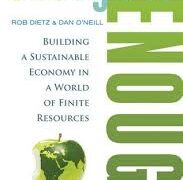A long time coming Everything about Final Fantasy VII Remake seems to have been protracted, from its announcement to development to release. The original Final Fantasy VII was released all the way back in 1997 and was hailed by many who played it as a classic . As far as role-playing games go, the seventh instalment of the series is commonly accepted to be a pioneer in its genre, selling over 10 million copies during its original release; the game is available on all modern consoles and mobile devices. While the story of a group of misfits banding together to save the world from destruction and demigods inspired its players, and its tactical turn based combat system was engaging and strategic, the game’s visuals have not aged well. At all. The character models of the original release are blocky, deformed messes that only slightly resemble the characters they are meant to portray. Due to its popularity the developer Square Enix made various spin-offs including prequels and a full sequel in movie-form. However, what fans have been clamouring for is a fully realised, big budget remake of the original in order to bring the game up to modern standards, with cutting edge graphical quality and top notch voice acting while, most importantly, making it fun to actually play. And so in 2015 they announced that the game would be recreated from the ground up…. with a catch. More to come You see, this game is only part one of the Final Fantasy VII Remake project and only covers around ten percent of the events of the original story. As a result the “full” story will be told over the course of an as-yet-unknown number of games. This is absolutely a cynical cash grab but at the same time I wouldn’t accuse its developers of laziness: there is clearly some effort and passion behind this game as well. After five secretive years of development the game has finally been released and must meet fan expectations preceding its 5 years’ gestation. Contemporary game Final Fantasy VII Remake eschews the traditional fantasy tropes of castles, kingdoms, monarchical bloodlines and prophecies in favour of bleak, hyper industrialised cityscapes. Castles and dungeons are replaced with corporate skyscrapers, energy reactors and unethical test labs. Monsters, swords and sorcery are still present but are interwoven with a sci-fi, near-future aesthetic to create a world ripped both from stories of magic and wonder as well as grim dystopian futures watched over by ruthless corporations. What’s the story? The main story follows the adventures of Cloud Strife, an anxious, distrustful protagonist who just so happens to be a rogue super-soldier turned mercenary. He’s the kind of person you cross the street to avoid and his absurdly oversized weapon of choice, the gargantuan Buster Sword, certainly contributes to that, along with his cobbled-together soldier attire that gets more confusing the more you look at it. His hairstyle, a strange formation of blond spikes, suggests that the reason he turned to mercenary work is so he can afford tubs of hair gel. He turned his back on his former employer, the Shinra Electric Power Company, whose presence permeates the entire city of Midgar in the form of private armies, spies, assassins, and weaponised machines. How does it work? The game begins with a memorable mission to bomb a Shinra reactor providing Mako energy, this world’s equivalent to fossil fuels, which is quite literally being sucked directly from the soul of the planet. You see, in his search for meaning in his life and most importantly money, Cloud has agreed to work for an organisation of extremist environmentalists called Avalanche, led by the eccentric Barret Wallace. Barret is a man with a machine-gun attached to his prosthetic arm and has a stature big enough to suggest that he has eaten at least two men whole. The two succeed in their mission while...
Trump was undone by ignoring Covid. He might have won otherwise....
posted by Cloud
Courtney Weaver writes in the FT Weekend Magazine (Oct 3/4 2020) that a huge part of Donald Trump’s support is the Evangelicals. Before you wonder who they are, just consider that there are an estimated sixty million of them in the US and it’s judged that about 85% of them voted for Trump in the 2020 election. That’s, well, a lot! So who are they? Well for one, their numbers are increasing because of “growing support among non-white evangelicals.” Latino immigrants to the US sometimes come from socialist countries in Middle and South America and are not impressed by the Democratic Party’s occasionally socialistic leanings. (For the best exploration you’re likely to find anywhere of what socialism is, see “Socialism: What is it and why do we need it?” by Graham Harrington on this website.) Evangelicals are preachers who claim to know God and often come on radio and TV telling people about God. They argue that the Bible should govern how we live our lives. They’re often represented by figures like Billy Graham and Jerry Falwell. Graham was so popular he was called “America’s Preacher” and Falwell, well you get an idea about him from this quote in reference to the 1954 Supreme Court decision to end segregation in schools: “If Chief Justice Warren and his associates had known God’s word and had desired to do the Lord’s will, I am quite confident that the 1954 decision would never have been made. The facilities should be separate. When God has drawn a line of distinction, we should not attempt to cross that line…The true Negro does not want integration…. He realizes his potential is far better among his own race.” (Source: Britannica.com) Check out Martin Luther King’s Letter from Jail, also on this...
What’s going on in America? Edward Luce explains....
posted by Cloud
What’s wrong with the American Constitution? A recent Edward Luce article in the Financial Times Weekend Magazine (October 17/18 2020) explains a lot about what’s going on in America. Like all good stories, it’s about people. He begins with Rosa Brooks, a law professor, who asks her students what they think of the American Constitution which is the user’s manual for America and it’s 233 years old. Her students are proud of it. She asks them if they’d just as quickly use 233 year old medical text books to study medicine today or 233 year old maps to navigate the seas. Hmm. The reality of the American Constitution is that it was a messy, more or less thrown-together document that tried to keep everybody happy in a very different age – the age of slavery. It calls for the separation of powers between the legislature (Congress,) the executive (the President,) and the judiciary (the Supreme Court.) These three power centres are supposed to be independent of each other. They’re each supposed to watch the other two carefully to make sure there’s no funny business. The point was to avoid ever returning to the way things had been in America before the American War of Independence – rule by a despotic king from afar (King George III of England.) Conservatives and liberals at war All that sounds pretty reasonable maybe but one doesn’t have to be a legal expert to see that things aren’t working out so well at present. Mostly the problem is the country is split down the middle into two competing camps: conservatism and liberalism, often known as the right and the left. On the right you have those who want to return to the days of the Constitution’s birth; they’re known as “originalists.” Think of people who take the Bible literally: do you believe that Adam and Eve actually existed, that whole bit about the snake and apple? Now fair enough if you do but it’s probably safe to assume that most people don’t take it literally; they likely view it as a parable, a demonstrative story to help us think about sin. Well, originalists take the Constitution literally which means that they believe that it should still be the lodestar, the guide, the rule book, never mind that there were only 4 million Americans when it was written or that women, Native Americans and blacks didn’t feature in the politics of the day. On the left tend to be those who believe that there are historical injustices (think of Black Lives Matter for instance) that need redressing and that the Constitution, while a great achievement of its day, is kind of out-of-date by now. But this of course is a simplification: there are far more groups and ideas on either side which complicates things even more. With Trump, the system of three power sources acting as watchdogs for each other has broken down. Trump doesn’t show any respect for it; neither therefore do his followers and there are 70 million of those. When you’ve got 70 million fans of course you’re going to keep making that pop music! Who’s the boss of the Constitution? The guardians of the Constitution, the people who decide what the Constitution actually means in real life are those on the Supreme Court. Clearly, Trump wants his own people in there – so do the Democrats. The problem is that the job of being a Supreme Court Justice is for life and it’s not easy to get rid of someone whose loyalties are to the other side. When a liberal Justice named Ruth Bader Ginsburg died recently Trump took the opportunity to replace her with Amy Coney Barrett who’s a member of People of Praise who believe in traditional gender roles: women are subordinate to men. With Barrett now in place the Supreme Court is mostly conservative: it’s 6-3. That means...
The Book of Ecclesiastes or “Stuff Trump hasn’t read.”...
posted by Cloud
I just read all of the Book of Ecclesiastes though it mostly makes no sense at all. Several times it does reveal the true purpose of existence though, which is nice. “There is nothing better for mortals than to eat and drink, and find enjoyment in their toil,” it says; then he (he is only known to us as “a Royal Philosopher”) says it again a slightly different way: “I know that there is nothing better for them than to be happy and enjoy themselves as long as they live; moreover, it is God’s gift that all should eat and drink and take pleasure in all their toil.” Then he says it again: “Likewise all to whom God gives wealth and possessions and whom he enables to enjoy them, and to accept their lot and find enjoyment in their toil – this is the gift of God.” And then he says it a fourth time: “commend enjoyment, for there is nothing better for people under the sun than to eat, and drink, and enjoy themselves, for this will go with them in their toil though the days of life that God gives them under the sun.” Now, you might be thinking, “Alright, alright, we get it,” but just in case you might say so without really getting it he tells it a fifth time but this time with a twist: “Go, eat your bread with enjoyment and drink your wine with a merry heart; for God has long ago approved of what you do. Let your garments always be white; do not let oil be lacking on your head.” It’s likely that those people who think being gay is a sin because it says so in the Bible won’t get so bothered about not...
“Use wore off the glamour of traditions:” “A Wheel within a Wheel” by Frances E. Willard...
posted by Cloud
Frances E. Willard is little known now; I only came across her myself recently and only today did I read her wonderful piece of prose about the bicycle called “A Wheel within a Wheel: How I Learned to Ride the Bicycle.” Who knew that the bike was a political as well as a leisure pursuit? Willard recounts how she was free and wild and able to grow stuff in her garden and follow “the occupations of the poulterer and the farmer ” because of her “inveterate opposition to staying in the house.” She was what we might call nowadays a “tomboy,” a term which I suspect is no longer politically correct. But everything changed for at the age of sixteen at which point she was entrusted with becoming a young lady: “the hampering long skirts were brought, with their accompanying corset and high heels; my hair was clubbed up with pins,” she had, in other words, to “cop on” probably so that she could find a husband. “My work then changed from my beloved and breezy outdoor world to the indoor realm of study.” Enter the bicycle! Cycling wasn’t entirely new to her at the age of fifty-three, a time when she was without her mother who’d died and was feeling that her “mental and physical life were out of balance.” She had tested out tricycles – the ones with three wheels – which women were more suited to, presumably because it was near impossible to fall off them. One fascinating reflection on the bicycle is that it was the means by which people who could never afford either the danger or the cost of a horse could nonetheless experience through “this bright invention […] the swiftness of motion which is perhaps the most...
Martin Luther King’s letter from prison, April 16, 1963...
posted by Cloud
Martin Luther King was imprisoned because the peaceful direct action in which he was involved and which he asserted was necessary was deemed illegal by law in the state of Alabama. His letter is addressed to his “fellow clergymen” because he believes their criticism of him is “sincerely set forth” though he admits he doesn’t usually respond to such criticism since to do so would take up all his time such is the volume of opposition to his activities. The outsider myth His argument in his letter is that he is not an outsider, not least because there are 85 affiliated organisations in the South with which he has legitimate business. (This charge of being an outsider is very cleverly taken up again later in the letter.) He was invited to the South because of these “organisational ties” which I think is a challenge to the church leaders who were likely threatened by the sheer force of his personality and the “inescapable network of mutuality” he identifies in Alabama and elsewhere. Are these detractors worried that they are those who “stand on the sideline and mouth pious irrelevances and sanctimonious trivialities”? Toward the end of the letter King expertly comes around again to the notion of the outsider in reference to “the early Christians [who, when they] entered a town [discommoded] the people in power” and suffered accusations of being “disturbers of the peace and outside agitators.” Underlying conditions and effects He is in Alabama and he is in prison because “injustice anywhere is a threat to justice anywhere” and “whatever affects one directly, affects all indirectly.” This style of his of echoing (you see it repeatedly in the letter – no pun intended!) comes from the Bible which is often written with the...
“Enough is Enough” by Rob Dietz and Dan O’Neill...
posted by Cloud
The authors argue here that GDP is not a good indicator of global health or happiness. It also rises in line with population and population has exploded – from 1.5 billion in 1900 to almost 8 billion in 2020. Our behaviour, especially when it comes to consumption, means that we’ve passed the “safe operating boundary” for three earthly activities: climate change; biodiversity loss; and the nitrogen cycle. Our ecological footprint, the land we need to make the stuff we want and to absorb the waste products of that activity, is heavy and large because our practices are unsustainable. Dietz and O’Neill successfully guide the reader through a story of where we’re going unless we change and while the book is certainly not jargon-free, what technical terminology there is is well-explained. For instance, the EROEI is simply “energy return on energy invested;” in other words, what’s the ratio of benefit to cost with respect to resources. In 1930, the EROEI of oil (the benefit of having the oil to use compared with the cost and effort of its acquisition and refinement) was 100:1; in 2005 that ratio was 15:1. Put another way, using oil has become more than six times less efficient in 75 years. We’re told – some are reminded – that GDP (gross domestic product) is linked directly with pollution: the more GDP, the more pollution, and yet we think GDP is synonymous with happiness but it’s not. Sure, income is good; we all like to have money to buy the things we like to have but this is only true to a certain point beyond which there are ever-decreasing returns. You only need a certain amount of money to be happy; after that it just becomes about competition, wanting to have more...







